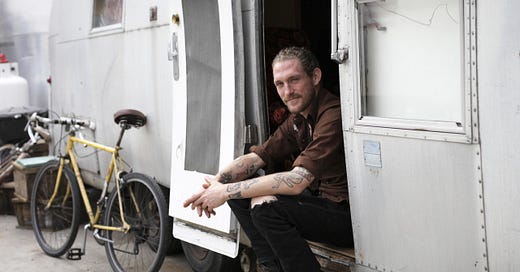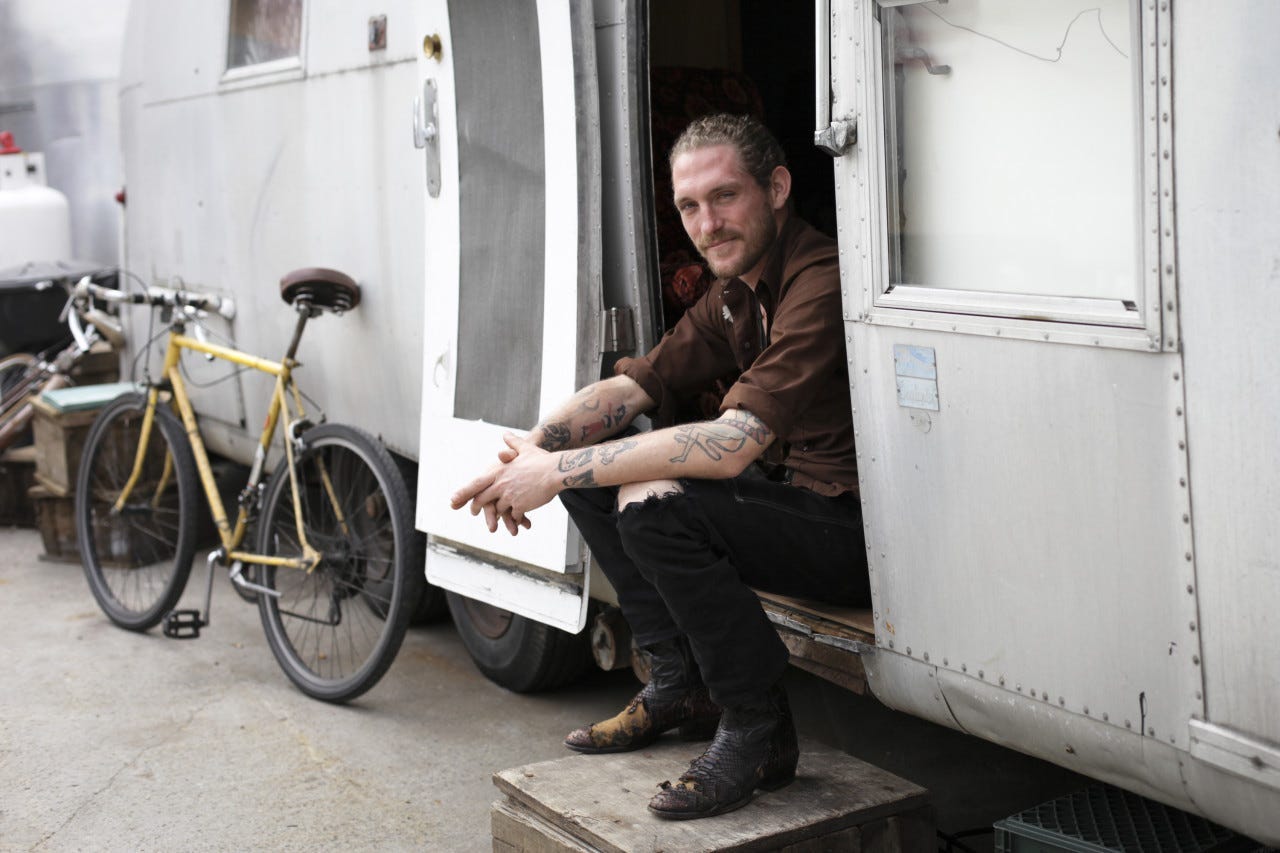The Ol’ Banjo Sounds Good
From hopping freight trains in West Virginia to living in a trailer park in Brooklyn, Morgan O’Kane is New York’s banjo-playing, tambourine-toting, hillbilly-punk journeyman.
“That’s all I take with me,” Morgan O’Kane says with a slight drawl, nodding at the worn suitcase by the door. The battered box sits on one end, like a chunk of faded driftwood awaiting high tide.
After recovering the Samsonite from the trash, O’Kane reinforces one of its broad sides with a scrap of a rubber gym mat. The case carries only spare strings and a stack of CDs he’ll sell at his next show. “I don’t really change my clothes very often,” O’Kane admits. It is his world. It is his portable seat and his instrument, one he values almost as much as the banjo on his knee. He’s kicked his way through at least ten of these over the years—WHUMP WHUMP WHUMP—with a foot-pedal that strikes the rubber and sends a boom through the box and against the screech of subway platforms. An improvised bass drum, insured against damage. “It loses its sound when you crack the wood,” he tells me three days before hitting the road for a gig in Massachusetts.
Keep reading with a 7-day free trial
Subscribe to Narratively to keep reading this post and get 7 days of free access to the full post archives.




